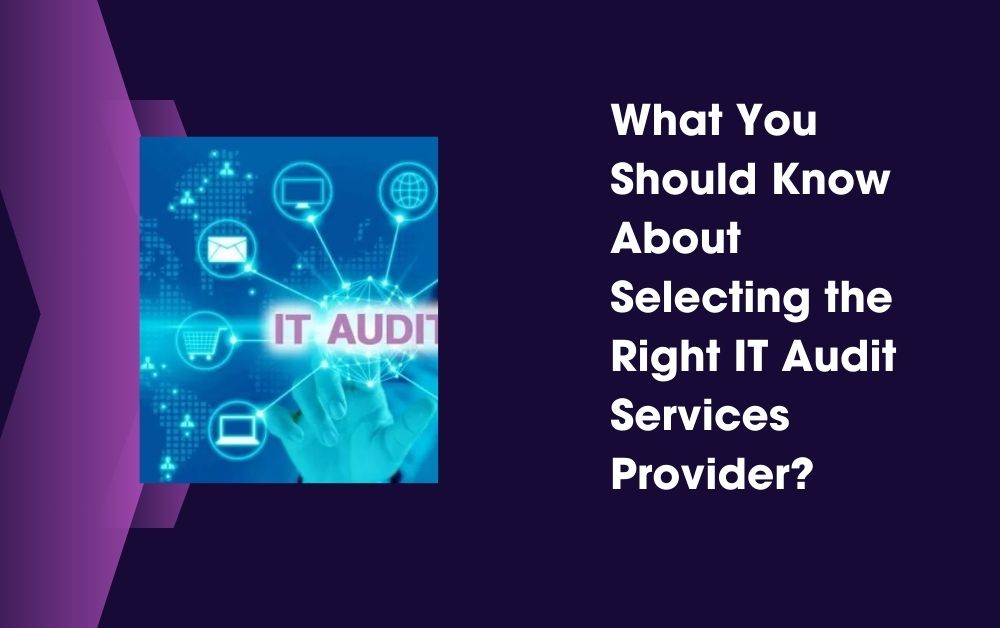If you’ve ever heard about IT audits and wondered what they involve, you’re not alone. IT audits can sound complex, but they are crucial for ensuring your business’s technology systems are secure, efficient, and compliant with regulations. This blog will walk you through what IT audit services are, why they are important, and how you can prepare for them.
What Are IT Audit Services?
Understanding IT Audits
An IT audit is an examination of your company’s technology systems. This includes everything from hardware like servers and computers to software applications and data management practices. The goal is to assess how well these systems are working, how secure they are, and whether they meet legal and regulatory standards.
Types of IT Audits
There are several types of IT audits, each focusing on different aspects of your technology:
- Compliance Audits: These ensure that your IT systems adhere to relevant laws and regulations.
- Security Audits: These focus on the security of your systems, looking for vulnerabilities that could be exploited by hackers.
- Operational Audits: These assess how effectively your IT systems are supporting your business operations.
- Performance Audits: These evaluate the efficiency of your IT systems to ensure they are running smoothly and meeting performance benchmarks.
Why Are IT Audits Important?
Ensuring Security
One of the primary reasons for conducting an IT audit is to ensure that your systems are secure. Hackers and cybercriminals are always looking for vulnerabilities to exploit. An IT audit helps identify potential security risks and provides recommendations to strengthen your defenses.
Compliance with Regulations
Many industries are subject to regulations that require businesses to follow certain standards for data security and privacy. For example, healthcare organizations must comply with HIPAA, while financial institutions must adhere to regulations like SOX. An IT audit helps ensure that your business is meeting these legal requirements, avoiding potential fines and legal issues.
Improving Efficiency
An IT audit isn’t just about finding problems; it’s also about finding opportunities for improvement. By evaluating your IT systems, an audit can reveal inefficiencies or outdated technologies that may be slowing down your business. Addressing these issues can lead to better performance and increased productivity.
Preparing for Future Growth
As your business grows, your technology needs will change. An IT audit helps you understand your current IT landscape and plan for future upgrades or changes. This ensures that your technology infrastructure can support your business’s growth and adapt to new challenges.
How to Prepare for an IT Audit
Gather Documentation
Before the audit begins, it’s important to gather all relevant documentation. This includes records of your IT systems, security policies, and compliance reports. Having this information readily available will help the auditors understand your current setup and identify areas for review.
Review Your IT Systems
Take some time to review your own IT systems before the audit. Check for any obvious issues or areas that might need improvement. This proactive approach can help you address problems before the auditors find them and demonstrate to the auditors that you are taking the process seriously.
Communicate with Your Team
Make sure your IT team and other relevant staff are aware of the upcoming audit. They should be prepared to answer questions and provide information to the auditors. Good communication can help the audit go smoothly and ensure that everyone is on the same page.
Understand the Audit Scope
The scope of an IT audit can vary depending on what is being reviewed. Make sure you understand what the auditors will be looking at and any specific areas they will focus on. This will help you prepare the necessary documentation and information.
What to Expect During an IT Audit
Initial Meeting
The audit process usually begins with an initial meeting between the auditors and your team. During this meeting, the auditors will explain the audit process, review the scope, and discuss any specific concerns or areas of focus.
Documentation Review
Next, the auditors will review the documentation you have provided. This includes policies, procedures, and records related to your IT systems. They will use this information to understand your current setup and identify any potential issues.

System Assessment
The auditors will then assess your IT systems. This may involve reviewing your hardware, software, security measures, and data management practices. They may also conduct interviews with your IT staff and other key personnel to gather more information.
Reporting and Recommendations
After the assessment, the auditors will prepare a report detailing their findings. This report will include any issues or vulnerabilities identified, as well as recommendations for improvement. You will have the opportunity to review the report and discuss the findings with the auditors.
How to Follow Up After the Audit
Address Findings
Once you receive the audit report, it’s important to address any findings or recommendations. This may involve making changes to your IT systems, updating policies, or implementing new security measures. Promptly addressing these issues will help improve your IT infrastructure and reduce the risk of future problems.
Implement Improvements
Based on the recommendations, implement any necessary improvements to your IT systems. This could include upgrading outdated technology, enhancing security measures, or streamlining processes to increase efficiency.
Monitor and Review
After making improvements, continue to monitor and review your IT systems regularly. This will help ensure that the changes are effective and that your systems remain secure and efficient. Regular reviews will also prepare you for future audits and help maintain compliance with regulations.
Conclusion
IT audits may seem complex, but they are a valuable tool for ensuring your technology systems are secure, efficient, and compliant with regulations. By understanding what to expect and preparing accordingly, you can make the audit process smoother and more beneficial for your business. Regular IT audits and ongoing improvements will help keep your systems running smoothly and support your business’s growth and success.
Note:- For more articles visit on magazineted.
